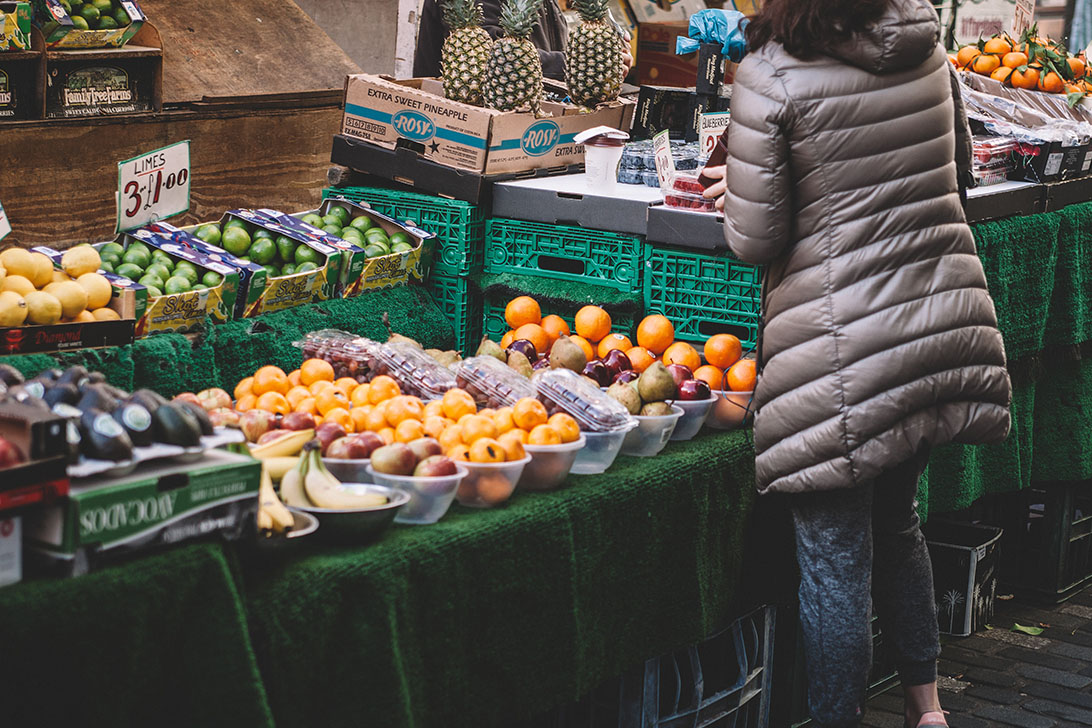Written by Myles Spar
Posted on: October 31, 2018
Share This

I’ve written pretty extensively about common foods that could be carcinogenic—you can see my posts here, here, and here for details. One thing I haven’t really touched on, though, are genetically modified organisms (GMOs). But what exactly are GMOs, and are GMO foods really harmful? Let’s take a look.
What are GMOs?
The World Health Organization (WHO) says GMOs are “organisms (i.e. plants, animals or microorganisms) in which the genetic material (DNA) has been altered in a way that does not occur naturally by mating and/or natural recombination.” The process of creating GMOs is often called genetic engineering, and it involves transferring individual genes from one organism to another or between species that are not related. The WHO further explains that GM foods are those produced using or from GMOs. Why genetically modify food? Primarily to create crops that can withstand herbicide and pests, although some companies are experimenting with instilling arguably more frivolous traits like resistance to browning in apples. Per HuffPost, here are some of the most common GM foods:
• Corn
• Soy
• Alfalfa
• Canola
• Sugar Beets
In fact, the vast majority of corn and soy in the U.S. is GMO.
What effect do they have?
Whether genetic modification improves food is debatable. According to the Non-GMO Project, “there is no evidence that any of the GMOs currently on the market offer increased yield, drought tolerance, enhanced nutrition, or any other consumer benefit.” But GMO producers like Monsanto claim that the use of GMO seeds can help conserve resources and fight disease, among other benefits.
Because so many genetically modified crops have been designed to tolerate herbicide, the use of Roundup (manufactured by Monsanto) and other herbicides has increased fifteen-fold, according to the Non-GMO Project. Many experts have voiced concerns about the safety of these herbicides. The active ingredient in Roundup, glyphosate, was classified as “probably carcinogenic to humans” in 2015 by the World Health Organization. Earlier this year, a jury ordered Monsanto to pay a plaintiff who claimed his cancer was caused by Roundup $289 million in damages, according to Business Insider. Harvard University has put together an excellent resource detailing the public’s concerns about GMOs in general and the ways science has addressed these concerns, which you can read here. One main concern I have is is that glyphosate has been shown to cause a major disturbance in the normal gut bacteria we all need for good health, so eating GMO foods contaminated with glyphosate affects the gut in ways that can contribute to inflammatory and other conditions.
There are many ways in which GMOs could be affecting the environment as well. For example, Fortune reports that glyphosate has been found to be harmful to honeybees and may be responsible for colony collapse disorder and other afflictions.
How can you avoid GMOs?
Given the concern about the negative impact GMOs may have on our health and the environment, how can they be avoided? My advice on how to shop for non-GMO foods is similar to what I recommend here for avoiding carcinogenic foods at the grocery store. Remember that companies in the United States aren’t required to disclose GMO content, but many manufacturers will proudly label their products as GMO-free. Aside from reading labels, your best bet is to avoid mass-produced and processed foods. At the grocery store, this means shopping primarily in the outer aisles, particularly the produce section. Better yet, skip the store and head to your local farmer’s market to buy fresh food straight from the farmer—check out this National Farmer’s Market Directory to find one near you. Here are some other ideas about how to shop for non-GMO foods courtesy of Whole Foods Market:
• Check the source on meat, eggs, and dairy to ensure they’re not from animals given GMO feed
• Choose frozen fruits and vegetables, which are typically non-GMO
• Buy organic produce, since the USDA National Organic Standards prohibit GMOs
• Seek out dry beans, grains, nuts, and seeds
At Tack180, we understand how difficult it can be to navigate the complicated world of diet and nutrition, especially when you’re busy. That’s why our program includes the ongoing professional support of a nutritionist. With a data-driven plan based around your own physiology, we’ll give you the tools you need to live your life with purpose and the knowledge that you’re doing all you can for optimal health.

About Myles Spar, MD
Myles Spar, MD, MPH is board-certified in Internal Medicine and in Integrative Medicine. As a clinician, teacher and researcher on faculty of two major medical centers, he has led the charge for a more proactive, holistic and personalized approach to care that focuses on cutting edge technology and preventative care. Dr. Spar has traveled with the NBA, presented a TEDx Talk, appeared on Dr. Oz, and been featured in publications such as the Men’s Journal and the Los Angeles Times.
